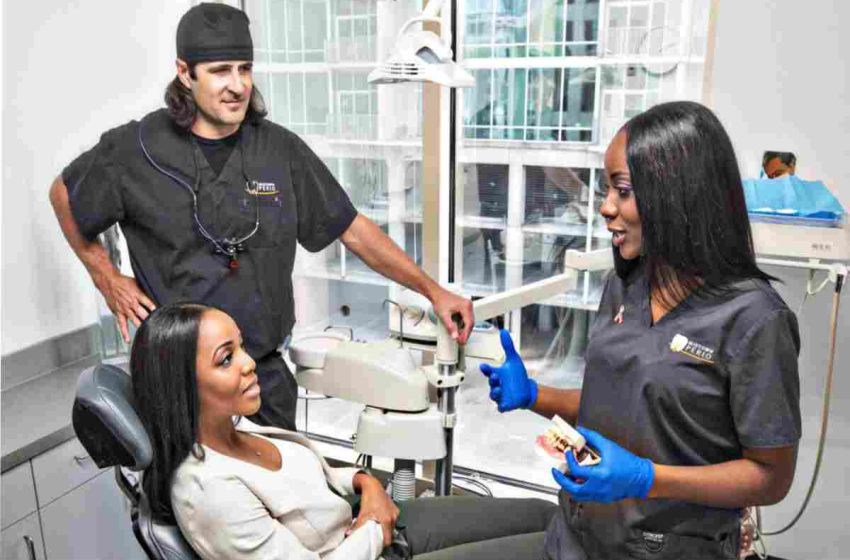
7 Lifestyle Habits To Maintain Healthy Teeth And Gums
Lifestyle Habits To Maintain Healthy Teeth And Gums – Looking after your teeth and gums is a lifetime responsibility. You only get one set of permanent teeth, so you must prioritize them. Your teeth and gums play an essential role in your entire life as they help you eat, drink, speak, socialize, and feel good about yourself. Moreover, healthy teeth and gums will also reduce your risk of chronic diseases like diabetes, respiratory illnesses, stroke, and heart diseases.
Good oral hygiene isn’t only about brushing your teeth or using the right dental products. Most of the time, it’s your lifestyle habits that significantly affect the health and quality of your teeth and gums. So, which practices are best for your oral health?
Here are seven lifestyle habits you need to maintain in order to achieve healthy teeth and gums:
Table of Contents
1. Brush Your Teeth Before Bed
Most of you are probably aware of the general recommendation of brushing your teeth twice a day: morning and night. While many of you never miss brushing your teeth during the day, some neglect to do it at night. It may be because they’re too sleepy to do it or because they simply choose not to. Unfortunately, not brushing your teeth before bed will only leave more plaque and germs to thrive and multiply in your teeth and gums while you sleep.
Aside from waking up with a stinky breath, you might be surprised to see white spots around your gums after not brushing your teeth for several consecutive nights. These white spots can signify several oral conditions such as canker sores, oral thrush, and others. You may read an informative post about white spots on gums and learn their causes as well as how healthy oral hygiene can help get rid of these spots. So, whether you’re busy or not, always include brushing your teeth in your bedtime routine.
2. Brush Properly
Your brushing method is equally important as all your efforts will be put to waste if you’re not doing it properly in the first place. When brushing your teeth, avoid doing it too hard like you’re scrubbing the grout of your toilet. Otherwise, hard brushing may damage your gums and tooth enamel in the long run and eventually lead to tooth sensitivity, gum erosion, and enamel damage.
When brushing your teeth, think of it like you’re massaging your teeth and gums. You can do this by brushing in small but gentle circular motions and not the typical back-and-forth motions. Take time to brush the back, front, and top of every tooth. This technique may last for two to three minutes, which is long enough to explore every tooth. Moreover, ensure you’re using a toothbrush with soft bristles so it wouldn’t be too harsh for your teeth. Then, remember to replace them every three months or when they start looking frayed. In addition, children may be more prone to cavities. Ensuring that your kids brush the proper way prevents possible teeth problems from occurring at an early age. Especially when we speak of the oral health of a child with ADHD, special attention is required since they have shorter attention spans and poor motor skills.
3. Floss Regularly
Brushing and flossing your teeth should go hand in hand. However, some people who brush regularly tend to miss flossing because they think that brushing is enough. But the thing is, there might still be food particles and plaque that are stuck in between your gums and teeth that your toothbrush may not have reached. So, as much as possible, don’t forget to floss your teeth once a day, preferably before bedtime, to protect yourself from tooth and gum diseases.
4. Drink More Water
Drinking water is already known to be beneficial for one’s overall health. But aside from that, regular water intake is also known to improve your oral health. Drinking water after meals can help wash out those tiny food particles that may have been stuck between your teeth. Moreover, it also helps flush out those acidic and sticky remnants of the food you eat, which may have been left sticking into your teeth.
5. Get A Good Sleep
Some of you may be wondering how your sleep is directly linked to your teeth and gums. A study shows that poor sleep quality is connected to oral health issues. People with sleep apnea tend to sleep with their mouths open, making their mouths susceptible to bacterial growth due to the lack of saliva flow. When you snore or sleep with an open mouth, your mouth becomes dry, making it a thriving place for bacteria and germs.
Moreover, people who frequently deprive themselves of sleep tend to have weaker immune systems responsible for fighting off bacteria from your mouth. So, to maintain your healthy gums and teeth and strengthen your immune system, always strive to get a good sleep.
6. Eat Healthily
Your eating habits are also directly linked to your teeth and gums. Eating a healthy and balanced diet will help in strengthening your oral health. Meanwhile, eating ready-to-eat fast foods and other sugary food choices are harmful to your teeth. When eaten, sugar tends to convert into acid in your mouth, which can damage your enamel. Moreover, sugary and acidic foods can also cause tooth cavities, so practice mindful eating.
7. Visit Your Dentist Twice A Year
Despite following healthy lifestyle habits, it’s still recommended that you see your dentist at least twice a year. They’ll keep your teeth and gums in check and perform cleanings every time you see them. They also help spot potential dental issues and offer treatments right away.
Takeaway
Attaining healthy teeth and gums needs a lifetime of care—from your young years until your adulthood. Looking after your dental health isn’t as hard as it sounds. So, starting today, be mindful of your daily habits and ensure they benefit your overall health.


